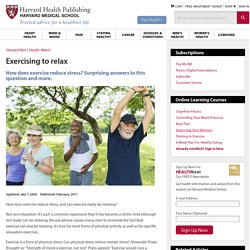

Coronavirus: Elderly hit hard by social isolation amid circuit breaker measures, Health News. A needle and the television set - these two objects have been keeping 83-year-old Nellie Woo company from morning to night for the past week while she is holed up alone at home. She used to enjoy playing bingo and exercising with her elderly neighbours at the Senior Activity Centre (SAC) downstairs, as well as chatting with volunteers who visited her studio flat.
Now that all activities for seniors - including home visits - have ceased due to strict circuit breaker measures, Madam Woo is feeling lonely and emotionally down. She thinks about suicide sometimes, and has spent so much time staring at her patchwork and TV lately that her doctor had to give her antibiotics for dry eyes. For such elderly people, the ills that come with social isolation pose a significant health risk, say some seniors and social workers. Out of the 208,000 people who live alone in Singapore, at least a quarter of them are elderly. In 2016, there were 47,000 seniors aged 65 and above who lived by themselves. Your Brain On Social Distancing: Loneliness & Isolation During The COVID-19 Coronavirus.
Physical impact on social isolation. Cognitive effect from social isolation. COVID-19: Tips for Managing Social Isolation. Meditation. 7 benefits of meditation, and how it can affect your brain - Insider. The benefits of meditation are extensive — and backed by science.

The mental health benefits of meditation include better focus and concentration, improved self-awareness and self-esteem, lower levels of stress and anxiety, and fostering kindness. Meditation also has benefits for your physical health, as it can improve your tolerance for pain and help fight substance addiction. This article was medically reviewed by David A. Merrill, MD, PhD, psychiatrist and director of the Pacific Brain Health Center at Pacific Neuroscience Institute at Providence Saint John's Health Center.
This story is part of Insider's guide on How to Meditate. Numerous studies have proven the benefits of regular meditation . Exercising to relax. How does exercise reduce stress, and can exercise really be relaxing?

Rest and relaxation. It's such a common expression that it has become a cliche. And although rest really can be relaxing, the pat phrase causes many men to overlook the fact that exercise can also be relaxing. It's true for most forms of physical activity as well as for specific relaxation exercises. Exercise is a form of physical stress. How exercise reduces stress Aerobic exercise is key for your head, just as it is for your heart. Regular aerobic exercise will bring remarkable changes to your body, your metabolism, your heart, and your spirits.
How can exercise contend with problems as difficult as anxiety and depression? The mental benefits of aerobic exercise have a neurochemical basis. Behavioral factors also contribute to the emotional benefits of exercise. Sour mood getting you down? Get back to nature. Research suggests that mood disorders can be lifted by spending more time outdoors.

Image: © Sidekick/Getty Images Looking for a simple way to help reduce stress, anxiety, and depression, and maybe even improve your memory? Take a walk in the woods. "Many men are at higher risk for mood disorders as they age, from dealing with sudden life changes like health issues, the loss of loved ones, and even the new world of retirement," says Dr.
Jason Strauss, director of geriatric psychiatry at Harvard-affiliated Cambridge Health Alliance. Your brain and nature Research in a growing scientific field called ecotherapy has shown a strong connection between time spent in nature and reduced stress, anxiety, and depression. It's not clear exactly why outdoor excursions have such a positive mental effect. "When people are depressed or under high levels of stress, this part of the brain malfunctions, and people experience a continuous loop of negative thoughts," says Dr. Find your space. Benefits of exercising. Does Nature heal ? Why Meditation is helpful ? Top 11 Caregiver Duties To Know. Caregiver duties are wide-ranging.

One moment a caregiver may be shopping for meals or cleaning the carpet and the next they could be discussing medication dosage with the pharmacist, or arranging transportation for a specialist appointment. The caregiver, whether a professional or a family member, is responsible for ensuring continuity of care to the senior loved one, whatever that entails. Since the role can be challenging, it is often best addressed through several helping hands — both paid and unpaid.
Caregivers can be a parent, spouse, son, grandchild, neighbor or hired help. It is a challenging job that can change daily as the needs of the senior changes. With many older Americans wanting to grow old in their own homes (also referred to as "aging in place"), there is an increased opportunity to help them realize dignity and fulfillment while doing so. Because no two seniors’ needs are the same, the caregiving requirements for each person will differ. 1. 2. 3.